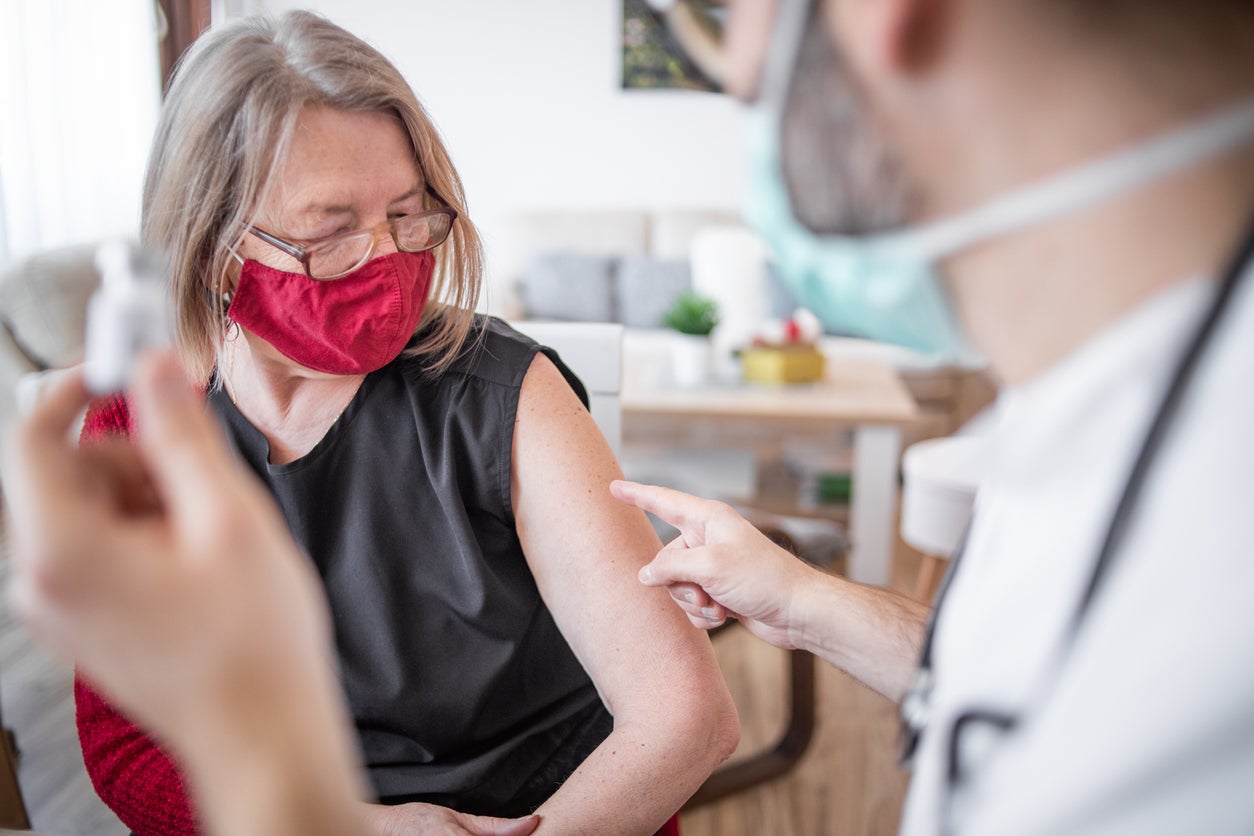Covid: Do vaccines wear off and why do we need booster jabs?
The booster jab programme has been extended to include adults over the age of 40

The Covid-19 booster jab programme has been broadened to include healthy people over the age of 40 after health officials warned of a “bumpy few months ahead”.
Previously, booster jabs were offered to people over the age of 50, as well as health and social care workers and vulnerable people six months after they received their second dose of a Covid vaccine.
So far, some 12.6 million people have had a third Covid-19 jab and around 80 per cent of the population over the age of 12 have had both doses of a vaccine.
But with winter fast approaching, health officials are concerned that rising cases of Covid-19, flu and other respiratory viruses may overwhelm the NHS.
Recent research has shown signs that vaccine efficacy declines over time, further fuelling the urgency of the booster programme to mitigate the number of deaths and hospitalisations due to severe disease during the colder months.
Here’s everything you need to know about whether vaccine efficacy wanes and why we need booster jabs:
Does the Covid vaccine wear off?
According to the Joint Committee on Vaccination and Immunisation (JCVI), recent research has shown a slight fall in the levels of protection against severe Covid-19 in people who had their first doses a long time ago.
A study carried out by researchers in Scotland, which was published in October, found that vaccine efficacy does decline over time, but the decline varies among the different vaccines.
The Pfizer and Moderna jabs, both of which are mRNA vaccines, declined only slightly in the first 10 weeks after the second dose and levelled out at about 90 per cent efficacy against severe disease after 20 weeks.
However, a yet-to-be-peer-reviewed study found that the AstraZeneca vaccine kept falling in efficacy, with protection against severe disease dipping to 60 per cent by 20 weeks.
In a report on Monday, the UK Health Security Agency (UKHSA) said: “After a primary course of AstraZeneca and Pfizer-BioNTech vaccines, effectiveness against symptomatic disease appears to wear off with time.
“Overall, vaccine effectiveness against severe outcomes such as hospital admission remains high for several months after completing the primary course, but greater waning has been seen in older adults and those with underlying medical conditions compared to young, healthy adults.”
What is the science behind booster jabs?
A new study from the UKHSA highlighted how booster jabs can significantly increase people’s protection against getting a symptomatic case of Covid-19.
The study showed that two weeks after getting a booster, adults over 50 had at least a 93 per cent reduced risk of getting a symptomatic case of the virus, with protection against more severe disease and death expected to be even higher.
Professor Wei Shen Lim, chair of Covid-19 immunisation for the JCVI, said: “The booster dose markedly strengthens existing protection and will extend the duration of that protection against serious disease.
“We therefore urge people who are eligible for a booster to step forward and have your booster and maximise your protection.”
People who are eligible for a booster jab will be offered one six months after the second vaccine was given. They can book an appointment after five months.
Dr Michael Head, senior research fellow in Global Health at the University of Southampton, said the outcome of the study was “excellent” and “indicates that the advice to offer booster doses to the over 40s is a good move”.
“A winter of Covid-19 and flu brings huge uncertainty around the potential impact on those infections upon the health service, so the more immunity we can build up now, the better,” he added.
Join our commenting forum
Join thought-provoking conversations, follow other Independent readers and see their replies
Comments
Bookmark popover
Removed from bookmarks